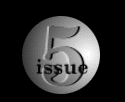




| ||
movie review by Gary Johnson [click on photo Studio Official Web site for THE REPLACEMENT KILLERS |
Chow Yun-Fat, one of Hong Kong's most popular movie stars, makes his American movie debut in The Replacement Killers--a flashy, kinetic action flick directed by Antoine Fuqua (whose previous work was mostly confined to music videos for rap stars). It's a tentative first effort for Chow, where he speaks only a few sentences of dialogue (as Clint Eastwood did in spaghetti Westerns) and most of his scenes quickly become filled with showers of bullets. His role in The Replacement Killers certainly doesn't test his acting ability. He's reduced to a presence--a powerful presence, but just a presence nonetheless.
In his films for director John Woo, Chow was also a formidable presence, but not just because of Woo's filmmaking. Chow convincingly played men who lived with violence but still conveyed a sense of moral authority. In The Killer, for example, he accidentally blinded a young woman during a shootout, and he then agreed to one last killing--in order to pay for a cornea replacement for her. In Hard-Boiled, he saved a nursery full of infants from death in a fire. In The Replacement Killers, once again he's thrown into a position of moral authority when he refuses to kill the child of a policeman. This refusal puts him in a showdown with the crime boss who ordered the murder. In the films of Woo (or Ringo Lam), we would get the opportunity to know more about the characters that Chow played, but with Chow's limited knowledge of the English language, his character in The Replacement Killers remains a mystery--a virtually indestructible superman with little personality behind his dark shades. And that's a shame because Chow is one of the most charismatic actors on this planet.
Director Antoine Fuqua has certainly studied the films of John Woo. Large parts of The Replacement Killers are strongly reminiscent of Woo efforts such as Hard Boiled and The Killers. But even more influential are the films of Ringo Lam, Full Contact in particular. However, The Replacement Killers is so dedicated to presenting us with flashy, kinetic images of violence that the characters never really register. Chow's performance is primarily confined to images of him sliding across floors while he blazes away with guns in each hand. He certainly looks good in motion, but that's all that's required of him. In the quieter scenes, he tends to stare into space. (Oh, the angst!) Rarely does he actually interact with other actors.
Director Fuqua does indeed supply some visually impressive scenes, with a large reliance on low-angle shots as people walk toward the camera. Fuqua has carefully created "the look" of Hong Kong action flicks, but his action scenes don't carry much of an impact. The editing in particular allows action scenes to become confusing blurs. He films every movement as if itís the most important action in a scene, and in the process he fails to build scenes dramatically.
The filmmakers have devised an array of locations for the gun battles--which take up the majority of this movie. We get a shootout in a car wash, a shootout in an arcade, a shootout in a movie theater, and that's just for starters. The movie culminates in a great-looking showdown in an alley, where Chow fires away at a car that frantically moves in reverse, sparks flying as it careens off the brick walls. Make no doubt about it: this movie looks great. We get lots of dark sunglasses, black leather, oily metal, and rain-slick streets. Neon fills the background of many camera shots. The blue glow of fluorescent lights signals that violence may break out and the yellow glow of candles signals warmth and safety. In other words, Fuqua loves to hype the visuals, but the action contains little impact. The machine-gun paced editing rarely conveys momentum. There is no build, no sense of mounting tension. Scenes consist of wild explosions of bullets, with limbs flying every direction.
Even the title of the movie is similarly superficial. The movie isn't about "the replacement killers": it's about the partnership that develops between Chow and Mira Sorvino. Sorvino plays a professional forger who agrees to provide Chow with a forged passport so he can get out of the country. Unfortunately, however, Sorvino gets a sublimely silly character. When Chow walks in, she's busy working on a forgery job--while she's done up in glossy red lipstick and a hot, black mini-skirt! (Once again, this movie is all about how things look.)
The movie gives us an intriguing development when assassins come blazing into her office. But she was prepared, with a gun beneath her desk. Sorvino and Chow start blasting away in order to survive. For a couple minutes, it's unclear who the assassins are really after. Are they after Sorvino for botching a forgery job? Or are they after Chow? The scene is filled with uncertainty. In the process, a jittery relationship develops between Chow and Sorvino. But then the filmmakers back way. No, the assassins were after Chow. And from then on Sorvino is just along for the ride. Their relationship contains none of the impact of the Chow/Danny Lee relationship in The Killer.
The Replacement Killers gets off to a great looking start, and it certainly has the look of Hong Kong cinema down cold, but the movie never delivers much of a visceral punch.
| |

